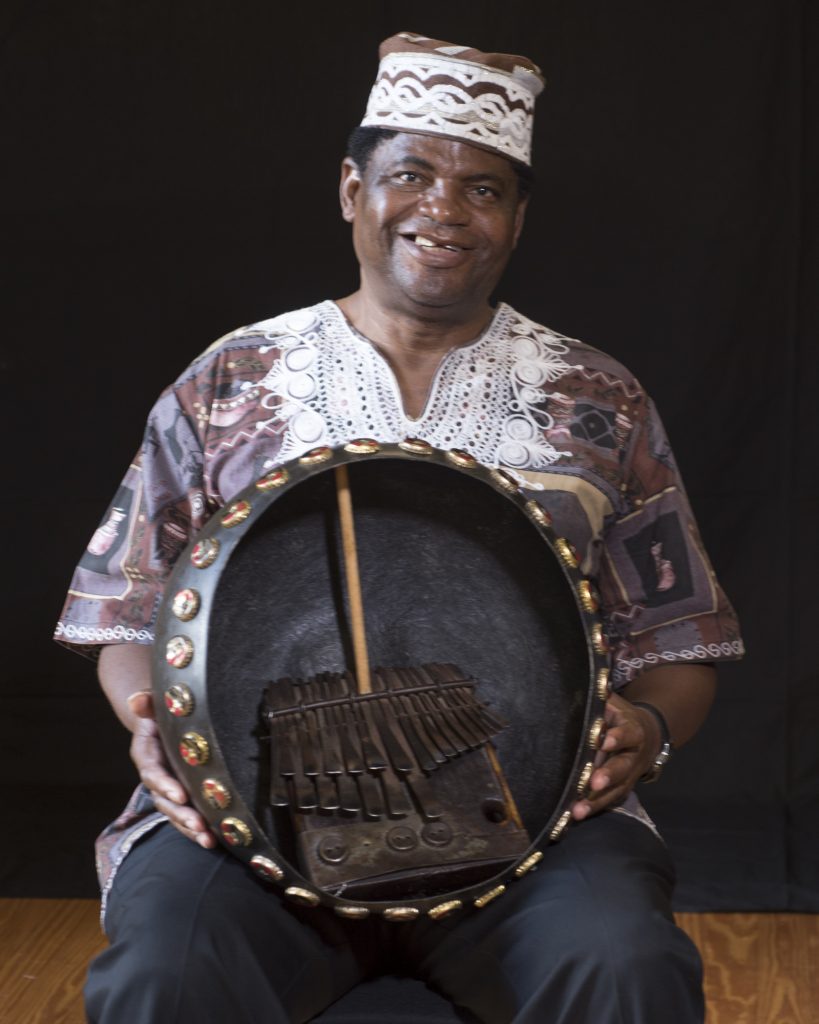Remembering Cosmas Magaya (1953–2020)
The Press was sad to learn of the passing of Chicago author and master musician Cosmas Magaya this week of COVID-19. Below, ethnomusicologist Paul F. Berliner offers a remembrance of his coauthor, longtime collaborator, and friend.
On July 10th, 2020, coronavirus took the life of one of the world’s great musicians, mentors, and cultural ambassadors, Zimbabwean mbira master Cosmas Magaya. In North America, Europe, and Africa where he performed, he was universally loved by his following not only for his inspired virtuosity and expressivity, but for his generosity of spirit.

A virtuoso from an early age, Cosmas was a key player in the renowned mbira ensemble, Mhuri yekwaRwizi, led by singer Hakurotwi Mude. He performed both for Shona religious ceremonies and for the concert stage. Initially sponsored to the USA by the Kutsinhira Cultural Arts Center (Eugene, OR) in the 1990s, Cosmas subsequently traveled widely and regularly to perform and teach. Countless students and musicians had the privilege of learning from him in university classrooms, at mbira camps and workshops, and in private lessons.
His talents were first showcased internationally in the 1970s on the recordings The Soul of Mbira and Shona Mbira Music, and subsequently, on the independently produced CDs: Afamba Apota (2000, with singer and mbira player Beauler Dyoko) and Anoyimba (2002). In 1999, he toured the States with the Zimbabwe Group Leaders Mbira Ensemble, and through the next decade, appeared together with Beauler Dyoko in a mbira duo. Their dramatic performance at NYC’s Washington Square Church—presented by the World Music Institute two weeks after 9/11—was remembered by their audience as profoundly healing. Over the decades, Cosmas was also a guiding presence at the annual North American Zimbabwe Music Festival (Zimfest).
His richly textured life at home in Zimbabwe encompassed avid farming, a management position at the Dairy Marketing Board, multiple terms as village headman, and director of Nhimbe for Progress, a non-profit organization engaged with rural development and emergency relief.
Magaya was deeply committed to Shona cultural knowledge and its documentation, working alongside his friend, student, and musical associate, professor emeritus Paul Berliner, for fifty years. He was a regular visitor to Duke University, where he held his final residency in 2016. His life and artistry is commemorated in The Art of Mbira: Musical Inheritance and Legacy(Berliner 2020), released only months before his passing, and a forthcoming players’ method book, Mbira’s Restless Dance: An Archive of Improvisation (Berliner and Magaya, 2020) by the University of Chicago Press.
We mourn his loss.